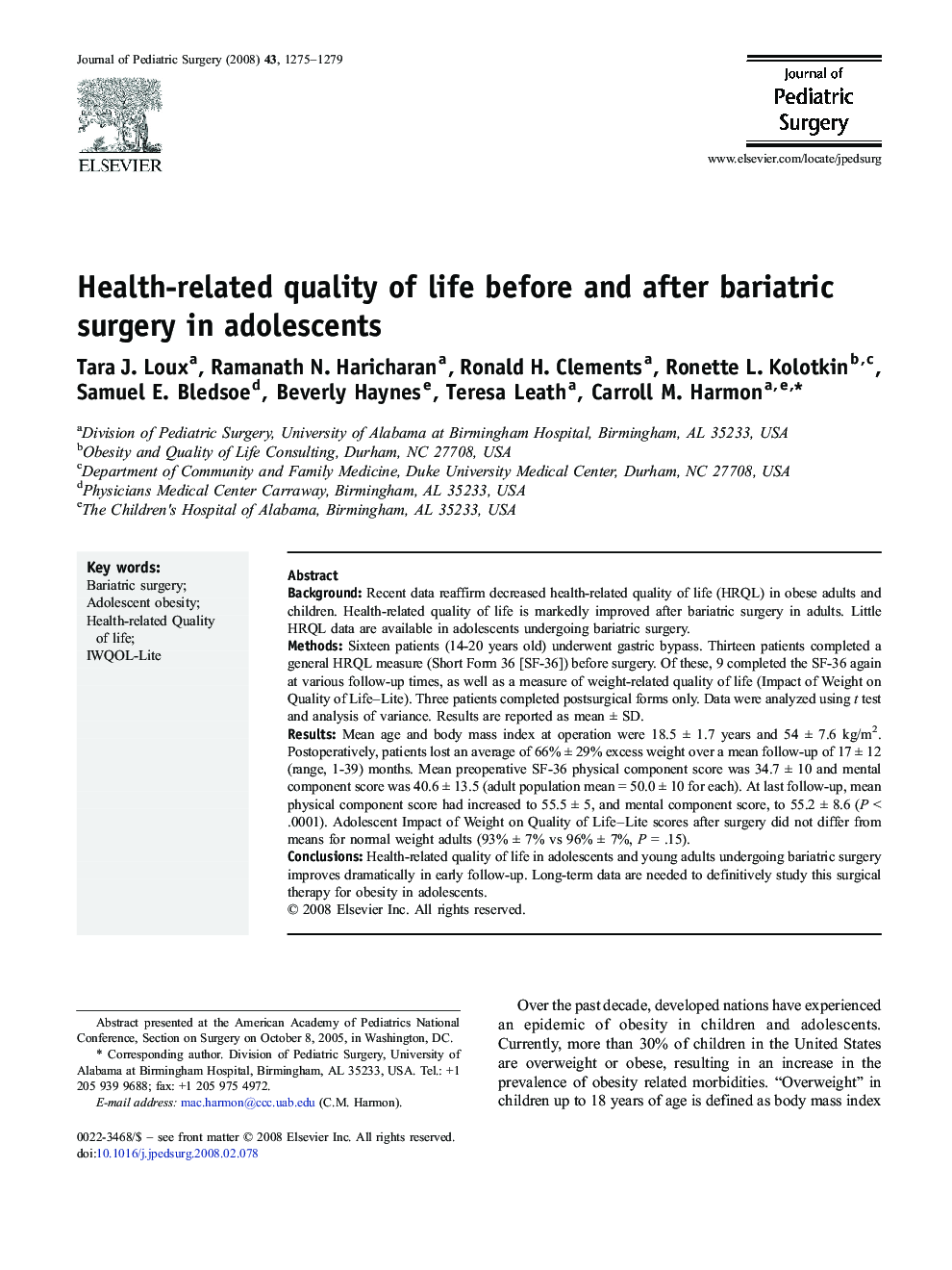| Article ID | Journal | Published Year | Pages | File Type |
|---|---|---|---|---|
| 4158872 | Journal of Pediatric Surgery | 2008 | 5 Pages |
BackgroundRecent data reaffirm decreased health-related quality of life (HRQL) in obese adults and children. Health-related quality of life is markedly improved after bariatric surgery in adults. Little HRQL data are available in adolescents undergoing bariatric surgery.MethodsSixteen patients (14-20 years old) underwent gastric bypass. Thirteen patients completed a general HRQL measure (Short Form 36 [SF-36]) before surgery. Of these, 9 completed the SF-36 again at various follow-up times, as well as a measure of weight-related quality of life (Impact of Weight on Quality of Life–Lite). Three patients completed postsurgical forms only. Data were analyzed using t test and analysis of variance. Results are reported as mean ± SD.ResultsMean age and body mass index at operation were 18.5 ± 1.7 years and 54 ± 7.6 kg/m2. Postoperatively, patients lost an average of 66% ± 29% excess weight over a mean follow-up of 17 ± 12 (range, 1-39) months. Mean preoperative SF-36 physical component score was 34.7 ± 10 and mental component score was 40.6 ± 13.5 (adult population mean = 50.0 ± 10 for each). At last follow-up, mean physical component score had increased to 55.5 ± 5, and mental component score, to 55.2 ± 8.6 (P < .0001). Adolescent Impact of Weight on Quality of Life–Lite scores after surgery did not differ from means for normal weight adults (93% ± 7% vs 96% ± 7%, P = .15).ConclusionsHealth-related quality of life in adolescents and young adults undergoing bariatric surgery improves dramatically in early follow-up. Long-term data are needed to definitively study this surgical therapy for obesity in adolescents.
